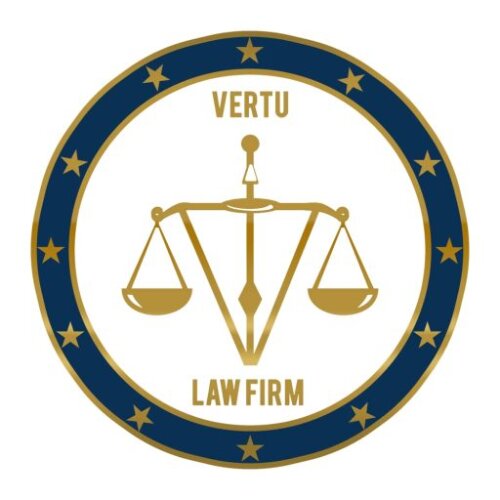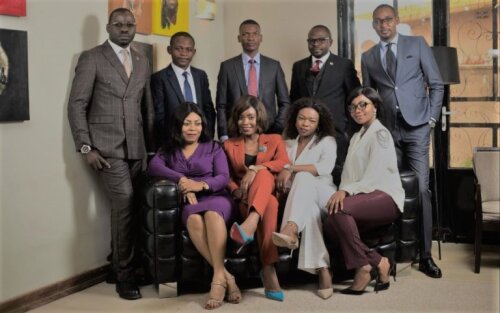Best Private Equity Lawyers in Lubumbashi
Share your needs with us, get contacted by law firms.
Free. Takes 2 min.
List of the best lawyers in Lubumbashi, DR Congo
About Private Equity Law in Lubumbashi, DR Congo
Private equity refers to investment funds, generally organized as limited partnerships, that buy and restructure companies that are not publicly traded. In Lubumbashi, the second-largest city and key commercial hub in the Democratic Republic of the Congo (DR Congo), private equity is gaining prominence as investors seek opportunities in mining, energy, infrastructure, and emerging sectors.
The private equity landscape in Lubumbashi is shaped by both national regulations and the specific dynamics of the local market. Investors, including both Congolese and foreign entities, are increasingly interested in acquiring or investing in local businesses with high growth potential. Navigating private equity transactions in Lubumbashi requires a solid understanding of DR Congo’s legal framework, compliance measures, and business culture.
Why You May Need a Lawyer
Engaging a lawyer is essential for anyone considering private equity investments or transactions in Lubumbashi. Legal professionals offer critical support to navigate the complex regulations and to protect your interests at every stage. Common situations where you might need legal assistance include:
- Conducting due diligence on target companies
- Drafting and negotiating investment agreements
- Structuring deals to comply with Congolese law
- Managing regulatory approvals and filings
- Advising on taxation implications of investments
- Resolving disputes that may arise between investors and local partners
- Ensuring anti-money laundering and anti-corruption compliance
- Handling repatriation of profits or capital
A local lawyer with private equity experience will ensure transactions are legally sound and minimize risks for all parties involved.
Local Laws Overview
Private equity activities in Lubumbashi are primarily governed by national legislation, especially the Uniform Act on Commercial Companies and Economic Interest Groups under the Organization for the Harmonization of Business Law in Africa (OHADA). DR Congo is a member of OHADA, so its regulations shape much of the local corporate and investment law.
Key laws and regulations affecting private equity in Lubumbashi include:
- OHADA Uniform Acts: Cover company registration, shareholder agreements, mergers and acquisitions, and dispute resolution mechanisms.
- Investment Code of DR Congo: Offers various incentives for investors, including tax breaks, subject to compliance with local content and employment requirements.
- Foreign Exchange Regulations: Oversee the movement of capital in and out of the country, impacting cross-border investments and repatriation of proceeds.
- Mining and Sector-Specific Codes: If the investment is in the mining sector or other regulated industries, specialized compliance obligations apply.
- Anti-Corruption and Anti-Money Laundering Laws: Ensure that investments are transparent and in line with DR Congo’s commitments to international standards.
Private equity transactions may also be subject to review or approval by government ministries or regulatory agencies, depending on the sector and size of investment.
Frequently Asked Questions
What is private equity and how does it work in Lubumbashi?
Private equity involves investing in private companies, often with the goal of restructuring or growing the business before selling for a profit. In Lubumbashi, it is commonly used as a way to inject capital into promising businesses, especially in high-potential sectors like mining, agriculture, and energy.
Are there restrictions on foreign investors participating in private equity deals?
DR Congo welcomes foreign investment, but certain sectors may have special requirements or limitations. Foreign investors may also need to comply with local content rules and seek approval from relevant authorities before finalizing transactions.
What legal structures are commonly used for private equity investments?
Limited liability companies (SARL) and joint stock companies (SA) are popular structures for private equity in Lubumbashi due to flexibility and limited liability for investors. The choice depends on the size and needs of the transaction.
Is due diligence necessary, and what does it involve?
Due diligence is critical in evaluating the financial, legal, and operational risks of a target company. It usually covers company registration, licenses, tax compliance, financial statements, contracts, and potential liabilities.
What are the main risks for private equity investors in Lubumbashi?
Risks include political and regulatory uncertainties, challenges related to enforcement of contracts, potential disputes with local partners, currency fluctuations, and sector-specific regulations.
How are profits and capital repatriated for foreign investors?
Repatriation of profits and capital is allowed under DR Congo law but subject to foreign exchange regulations. Proper filings and documentation are required to transfer funds abroad.
What kind of tax obligations apply to private equity investments?
Investors are subject to Congolese tax laws, which may include corporate income tax, capital gains tax, and other levies. Tax incentives may be available through the national Investment Code, but they require compliance with certain conditions.
Do private equity transactions require government approval?
Certain transactions, especially those involving sensitive sectors or foreign investors, may need approval from ministries, investment authorities, or regulatory bodies. A lawyer can identify and guide you through the necessary procedures.
How can I resolve disputes arising from my private equity investment?
Disputes can be resolved through negotiation, arbitration, or litigation. Many private equity contracts in Lubumbashi include arbitration clauses, benefiting from OHADA’s modern framework for alternative dispute resolution.
What steps should I take to ensure compliance with anti-corruption laws?
Establishing strong internal controls, conducting thorough due diligence on all partners, and working with a lawyer to comply with local and international anti-corruption regulations are crucial steps to prevent legal issues.
Additional Resources
For those seeking further information or support regarding private equity in Lubumbashi, the following resources may be helpful:
- Agence Nationale pour la Promotion des Investissements (ANAPI): The national agency that assists investors in the DR Congo.
- Chambre de Commerce et d’Industrie de Lubumbashi: Provides networking, support, and guidance for companies operating locally.
- OHADA (Organisation pour l’Harmonisation en Afrique du Droit des Affaires): Regional organization offering updates on business law and dispute resolution.
- Ministère de la Justice (DR Congo): Regulatory body overseeing legal matters and company registrations.
- Barreau de Lubumbashi: The Lubumbashi Bar Association, which can help locate qualified legal professionals.
Next Steps
If you are considering private equity investment in Lubumbashi, DR Congo, it is important to secure the right legal guidance early in the process. Here are practical steps to follow:
- Identify and consult with a lawyer experienced in private equity and Congolese business law.
- Define your investment goals and prepare a preliminary plan for your intended transaction.
- Request your lawyer to conduct a comprehensive due diligence of the target company or project.
- Work with your lawyer to structure the deal, draft agreements, and ensure compliance with all relevant laws and regulations.
- Ask about ongoing compliance obligations, including tax, employment, and reporting requirements post-investment.
- Secure necessary permits and approvals from governmental agencies, where required.
- Establish clear mechanisms for resolving potential disputes, such as including arbitration clauses within contracts.
Most importantly, look for lawyers with proven local knowledge and experience in private equity transactions to avoid costly mistakes and protect your interests throughout the investment process.
Lawzana helps you find the best lawyers and law firms in Lubumbashi through a curated and pre-screened list of qualified legal professionals. Our platform offers rankings and detailed profiles of attorneys and law firms, allowing you to compare based on practice areas, including Private Equity, experience, and client feedback.
Each profile includes a description of the firm's areas of practice, client reviews, team members and partners, year of establishment, spoken languages, office locations, contact information, social media presence, and any published articles or resources. Most firms on our platform speak English and are experienced in both local and international legal matters.
Get a quote from top-rated law firms in Lubumbashi, DR Congo — quickly, securely, and without unnecessary hassle.
Disclaimer:
The information provided on this page is for general informational purposes only and does not constitute legal advice. While we strive to ensure the accuracy and relevance of the content, legal information may change over time, and interpretations of the law can vary. You should always consult with a qualified legal professional for advice specific to your situation.
We disclaim all liability for actions taken or not taken based on the content of this page. If you believe any information is incorrect or outdated, please contact us, and we will review and update it where appropriate.











